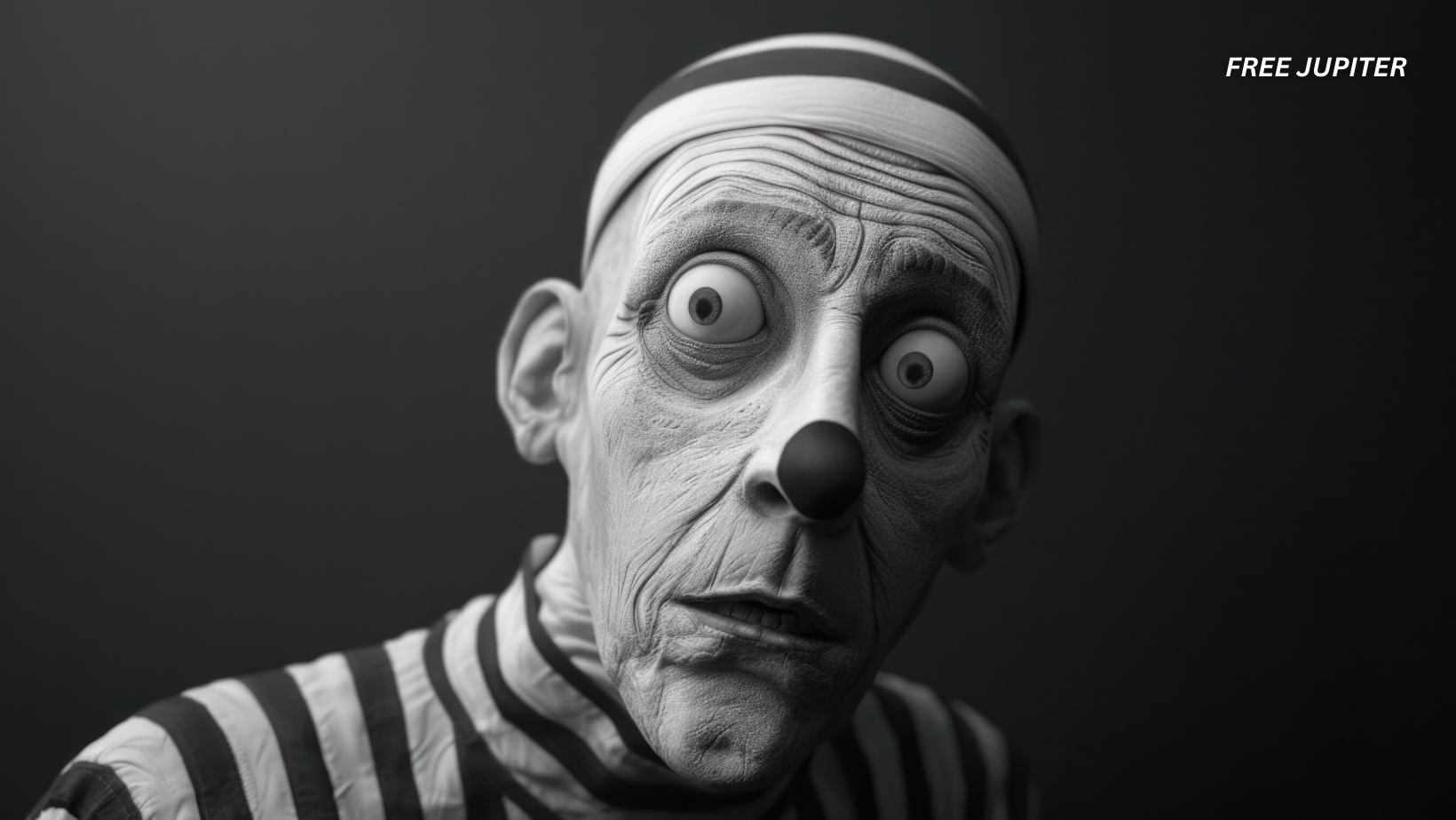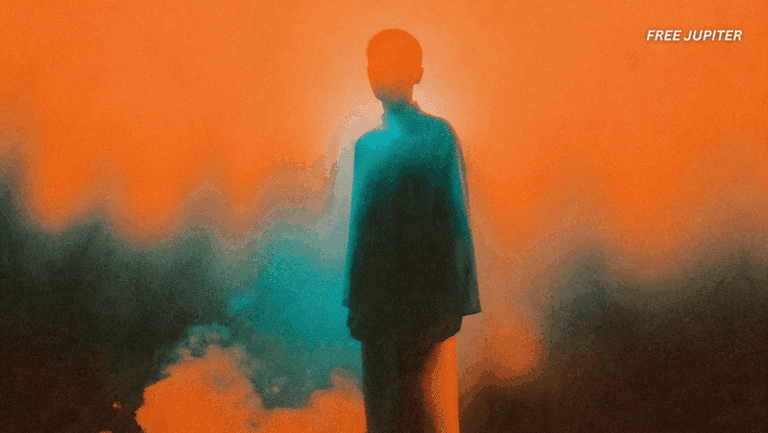Note: FreeJupiter.com shares general info for curious minds 🌟 Please fact-check all claims—and always check health matters with a professional 💙
Dark humor is like that strange, forbidden fruit in the comedy world—some people love it, others find it unsettling, and a few wonder if laughing at such things makes them a bad person. Think of that friend who drops a wildly inappropriate joke at a dinner table, leaving the room frozen before erupting in nervous laughter. If you can’t think of that friend, chances are, you might be that friend.
But here’s the twist: enjoying dark humor might say something surprisingly powerful about someone’s character. People who chuckle at jokes others would never dare to tell often share traits that go far beyond simply having an “edgy” sense of humor. Researchers and psychologists have found patterns in these individuals that might just make you see dark humor fans in a new light.
So, why do some people find laughter in life’s darkest corners? Here are nine fascinating traits commonly found in people who enjoy dark humor—and why those traits matter.
1. They’ve Been Through Something
People who appreciate dark humor often have personal experience with struggle. It’s not always trauma in the traditional sense, but they’ve faced enough challenges to understand that life isn’t all sunshine and rainbows.
Psychologists suggest this type of humor can be a coping mechanism—a way to process and make sense of difficult situations. By turning pain into a punchline, they reclaim control over something that once felt overwhelming. Laughing in the face of chaos isn’t just rebellious; it’s survival with a smile.
Read more: People Who Are Secretly Miserable at Work Tend to Show These 12 Signs
2. They’re More Intelligent Than You Might Think
It’s easy to dismiss fans of dark humor as insensitive or careless, but research tells a different story. A 2017 study found that people who appreciate dark humor often demonstrate higher levels of intelligence and emotional stability. In other words, beneath the laughter lies a sharper and steadier mind than most would expect.
Why is that the case? Dark jokes are rarely straightforward. They typically involve irony, satire, or unexpected twists that play with logic and social boundaries. To “get it,” you need to process multiple layers at once—cultural context, wordplay, and the punchline’s hidden angle. That mental juggling act requires both cognitive agility and emotional resilience.
Think of it this way: laughing at a dark joke isn’t just about having a “twisted” sense of humor; it’s proof that your brain can recognize patterns quickly, tolerate discomfort, and reframe sensitive topics through wit. It’s intelligence at work—just wearing a mischievous grin.
3. They’re Comfortable With Taboo Topics
Dark humor thrives in places polite conversation avoids: death, disaster, illness, tragedy. For many, these topics are uncomfortable or even off-limits. But dark humor fans? They’re willing to walk into those shadowy corners of life with curiosity rather than fear.
This comfort with taboo subjects often signals open-mindedness. They don’t shy away from life’s darker truths, and that willingness to confront uncomfortable realities can make them deeply authentic and honest individuals.
Read more: Prefer Deep Conversation Over Small Talk? These 8 Rare Traits Could Explain Why
4. They Have Strong Emotional Regulation
At first glance, laughing at dark or grim situations might look like insensitivity—but it’s often the opposite. People who can find humor in heavy topics usually have a refined ability to manage their emotions. Instead of letting fear, anxiety, or sadness take over, they can redirect those feelings through humor, using it as a shield and a release valve.
This doesn’t mean they ignore pain or deny that suffering exists. Quite the contrary, they recognize it fully. But instead of being consumed by negativity, they reframe the situation, showing resilience in the face of discomfort. This is a hallmark of emotional intelligence: acknowledging difficult emotions while choosing to handle them in a constructive way.
By transforming pain into humor, they create distance from distress, which allows them to process it more calmly. It’s not heartlessness—it’s adaptability. In a way, their laughter is proof of strength, not weakness, showing that they can navigate life’s darker corners without being swallowed by them.
5. They Understand the Power—and the Risk—of Laughter
Finally, lovers of dark humor know something important: timing and context are everything. A well-placed dark joke can break tension, provide relief, and even help people process painful topics. But delivered at the wrong moment, it can backfire spectacularly.
This awareness often gives them a heightened sense of social dynamics. They know when humor heals and when it harms. That discernment is part of what makes them socially intelligent—because at its core, humor is about connection.
Read more: 11 Clever Phrases Smart People Use to End Pointless Arguments
Walking the Thin Line: Humor, Harm, and Humanity
Dark humor, for all its wit and edge, isn’t without risks. Research has linked an appreciation for this type of humor to traits associated with the “Dark Tetrad”—narcissism, psychopathy, Machiavellianism, and sadism. In those cases, humor can become a weapon, used to belittle rather than bond.
But before anyone starts questioning their morals over a few dark jokes, here’s the truth: enjoying this style of humor doesn’t make someone a bad person. For most people, it’s the opposite—it’s a coping tool, a way to turn pain into laughter and light up places most would rather avoid. Dark humor, when used thoughtfully, can open the door to conversations society often sweeps under the rug. It can even make life’s hardest realities feel a little less heavy.
The key is balance. Humor should spark thought, not hostility; connection, not cruelty. Delivered in the right spirit, it can help people process grief, stress, and uncertainty. Misused, it can deepen wounds instead of healing them.
In the end, people who appreciate dark humor aren’t merely chasing shock value. They’re often deep thinkers, resilient spirits, and creative boundary-pushers who understand that laughter doesn’t always bloom in sunshine—it sometimes grows in the shadows. So, the next time someone cracks a joke that sounds a little morbid, pause before judging. That chuckle might not come from malice but from strength, intelligence, and a rare ability to find light in life’s darkest corners.
Image: Freepik.










